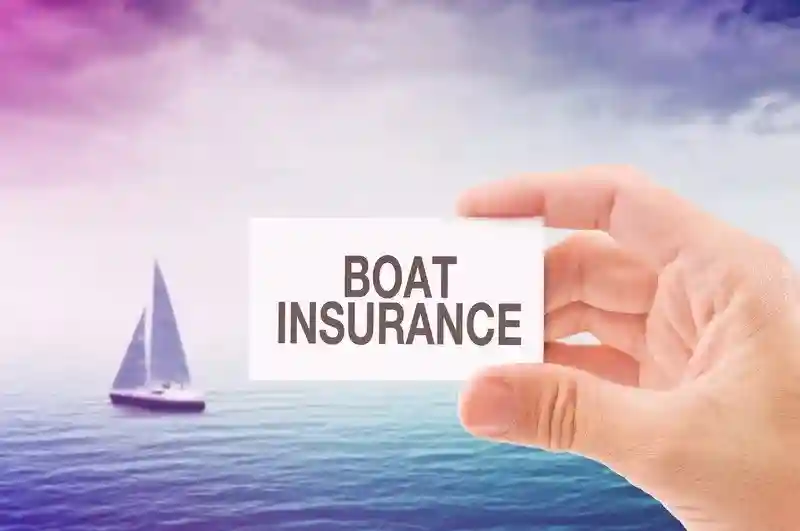Expert tips for Finding Affordable Boat Insurance for Older Boats can be challenging. Many boat owners struggle with high premiums and limited options. This comprehensive guide will help you navigate the complex world of boat insurance for older vessels.
Understanding the Challenges of Insuring Older Boats

Older boats present unique insurance challenges that newer vessels don’t face. Insurance companies view aged boats as higher-risk investments. This perception stems from several factors.
Why Older Boats Are Harder to Insure
- Increased breakdown risk: Older mechanical systems are more prone to failure
- Higher maintenance costs: Aging boats require more frequent repairs
- Limited replacement parts: Finding parts for vintage boats can be difficult
- Reduced safety features: Older boats may lack modern safety equipment
- Depreciation concerns: Value assessment becomes more complex with age
Older boats may be considered riskier and therefore cost more to insure. Insurance companies factor in the age of your boat when calculating premiums. Understanding these challenges helps you prepare for the insurance shopping process.
Expert Tips for Finding Affordable Boat Insurance for Older Boats

1. Research Specialized Insurance Providers
Not all insurance companies are created equal when it comes to older boats. Some specialize in vintage and classic vessels.
Companies That Insure Older Boats
- Hagerty: Specializes in classic and vintage boat insurance
- Magnum Insurance: Offers specific coverage for older boats
- GEICO Marine: Provides policies for various boat types including older vessels
- Progressive: Known for competitive rates on older boats
- BoatUS: Offers comprehensive coverage options
Look for insurance companies that specialize in insuring older boats. They understand the unique needs and challenges associated with aging vessels. These companies often have more flexible underwriting guidelines.
2. Understand Different Coverage Types
Choosing the right coverage type significantly impacts your premium costs.
Actual Cash Value (ACV) Policies
Actual Cash Value Policies pay out the current market value of your boat, taking depreciation into account. This option typically offers lower premiums but provides less payout in case of total loss.
Benefits of ACV Policies:
- Lower annual premiums
- Easier qualification process
- Good for boats with declining value
- Suitable for recreational use boats
Agreed Value Policies
Agreed value policies establish a predetermined payout amount regardless of depreciation.
Advantages of Agreed Value Coverage:
- Guaranteed payout amount
- Protection against depreciation
- Better for well-maintained older boats
- Ideal for classic or collectible vessels
Liability-Only Policies
For boats with minimal value, liability-only coverage might be most cost-effective.
When to Consider Liability-Only:
- Boat value under $10,000
- Self-insuring for physical damage
- Meeting minimum state requirements
- Reducing premium costs significantly
3. Maintain Detailed Boat Records
Proper documentation strengthens your insurance application and can reduce premiums.
Essential Documentation
- Purchase receipts: Original and subsequent ownership documents
- Maintenance records: Regular service and repair documentation
- Upgrade invoices: Evidence of improvements and modernization
- Survey reports: Professional condition assessments
- Photos: Current condition documentation
Well-maintained boats with detailed records often qualify for better rates. Insurance companies view meticulous owners as lower risk.
4. Consider Professional Marine Surveys
A recent marine survey can significantly impact your insurance options and costs.
Benefits of Marine Surveys
- Accurate valuation: Professional assessment of boat condition
- Safety verification: Confirmation of seaworthiness
- Insurance requirement: Many insurers require surveys for older boats
- Negotiation tool: Use survey results to justify coverage levels
Most insurance companies require surveys for boats over 20-25 years old. Invest in a quality survey to improve your insurance prospects.
5. Implement Safety and Security Measures
Installing modern safety equipment can reduce your insurance premiums.
Safety Equipment That Reduces Premiums
- GPS navigation systems: Modern positioning and tracking
- Automatic fire suppression: Updated fire safety systems
- Bilge alarms: Water intrusion detection
- Security systems: Anti-theft devices and alarms
- Emergency beacons: EPIRB or similar emergency equipment
6. Choose Your Deductible Wisely
Higher deductibles can significantly reduce your annual premiums.
Deductible Strategy for Older Boats
- Higher physical damage deductibles: Reduce comprehensive/collision costs
- Lower liability deductibles: Maintain adequate protection
- Consider self-insurance: For minor repairs and maintenance
- Balance risk and savings: Don’t exceed your financial comfort zone
According to a MarketWatch report published in December 2022, the average cost of boat insurance last year ranged from $200 to $500. More recent estimates in 2023 and 2024 put average costs of boat insurance somewhere between $300-$600/year for most boaters.
Factors That Affect Insurance Costs for Older Boats
Boat Age and Condition
The age of your boat directly impacts insurance costs. However, condition matters more than age alone.
Age Categories and Insurance Impact
- 0-5 years: Lowest premiums, full coverage options
- 6-15 years: Moderate premiums, most coverage available
- 16-25 years: Higher premiums, some coverage restrictions
- 26+ years: Highest premiums, limited coverage options
Boat Type and Size
Different boat types present varying risk levels to insurance companies.
High-Risk Boat Types
- High-performance boats: Speed increases accident risk
- Sailboats: Complex rigging and weather exposure
- Wooden boats: Fire and maintenance concerns
- Large yachts: Higher liability exposure
Lower-Risk Boat Types
- Pontoon boats: Stable and safe design
- Small fishing boats: Limited speed and exposure
- Aluminum boats: Durable construction
- Well-maintained cruisers: Proven seaworthiness
Geographic Location
Where you boat significantly affects your insurance costs.
High-Risk Boating Areas
- Hurricane zones: Atlantic and Gulf coasts
- High-theft areas: Urban marinas and waterways
- Congested waterways: Heavy boat traffic areas
- Extreme weather regions: Areas prone to storms
Lower-Risk Locations
- Inland lakes: Protected waters with minimal weather
- Northern regions: Shorter boating seasons
- Private marinas: Secured storage facilities
- Less populated waterways: Reduced collision risk
Money-Saving Strategies for Older Boat Insurance
Bundle Your Insurance Policies
Combining multiple insurance policies can provide significant discounts.
Common Bundle Options
- Home and boat insurance: Often 10-25% savings
- Auto and boat insurance: Multi-vehicle discounts
- Multiple boats: Fleet discounts for multiple vessels
- Umbrella policies: Additional liability protection
Take Boating Safety Courses
Completing certified boating courses demonstrates responsibility and can reduce premiums.
Recognized Safety Course Providers
- US Power Squadrons: Comprehensive boating education
- US Coast Guard Auxiliary: Safety and seamanship courses
- BoatUS Foundation: Online and classroom options
- State boating agencies: Local certification programs
Course completion certificates should be provided to your insurance company for discount eligibility.
Maintain a Clean Boating Record
Your boating history affects insurance rates just like your driving record affects auto insurance.
Factors That Impact Your Boating Record
- Accident history: Previous claims and incidents
- Violations: Boating under the influence or safety violations
- Experience level: Years of boat ownership and operation
- Training certifications: Formal boating education
Store Your Boat Properly
Where and how you store your boat affects insurance premiums.
Storage Options and Insurance Impact
- Covered dry storage: Lowest premiums due to reduced exposure
- Uncovered dry storage: Moderate premiums with weather protection
- Marina slips: Higher premiums due to storm and theft risk
- Mooring: Highest premiums due to maximum exposure
Working with Insurance Agents and Companies
Questions to Ask Insurance Providers
Asking the right questions helps you find the best coverage for your older boat.
Essential Questions for Insurance Shopping
- What is your experience with older boats?
- Do you require marine surveys for boats over X years?
- What discounts are available for safety equipment?
- How do you handle agreed value vs. actual cash value?
- What is your claims process for older boats?
Red Flags When Shopping for Insurance
Be aware of potential issues when selecting boat insurance for older vessels.
Warning Signs to Avoid
- Unusually low quotes: May indicate inadequate coverage
- Pressure to buy immediately: Legitimate companies allow time to decide
- Unclear policy terms: Avoid companies that won’t explain coverage
- No physical inspection: Some coverage may require boat inspection
- Limited customer service: Poor communication during sales process
Understanding Policy Exclusions and Limitations
Common Exclusions for Older Boats
Insurance policies for older boats often include specific exclusions.
Typical Policy Exclusions
- Mechanical breakdown: Engine and system failures
- Gradual damage: Slow deterioration over time
- Wear and tear: Normal aging and use
- Poor maintenance: Damage from neglect
- Racing activities: Competitive boating events
Coverage Limitations
Understanding policy limits helps you make informed decisions.
Common Coverage Limits
- Personal property: Limited coverage for boat contents
- Towing and assistance: Mileage and cost restrictions
- Emergency services: Limited reimbursement amounts
- Environmental damage: Pollution liability limits
Preparing Your Older Boat for Insurance
Pre-Insurance Inspection Checklist
Preparing your boat properly improves your chances of obtaining affordable coverage.
Mechanical Systems Check
- Engine condition: Recent service and maintenance records
- Electrical systems: Proper wiring and safety compliance
- Fuel systems: Secure lines and proper ventilation
- Steering and controls: Proper operation and condition
- Safety equipment: Current and properly maintained gear
Structural Assessment
- Hull integrity: No soft spots, cracks, or structural damage
- Deck condition: Secure and properly sealed surfaces
- Through-hull fittings: Proper condition and operation
- Rigging inspection: For sailboats, check all standing and running rigging
Documentation Organization
Having your paperwork organized streamlines the insurance application process.
Required Documentation
- Title and registration: Current and properly transferred
- Previous insurance: Claims history and coverage details
- Maintenance records: Service intervals and major repairs
- Survey reports: Recent professional assessments
- Equipment receipts: Proof of safety and navigation equipment
Alternative Insurance Options
Captive Insurance Companies
Some boat clubs and organizations offer group insurance programs.
Benefits of Group Insurance
- Lower premiums: Group buying power
- Specialized coverage: Tailored to specific boat types
- Member services: Additional benefits beyond insurance
- Simplified claims: Streamlined process for members
Self-Insurance Considerations
For some older boat owners, self-insurance might be viable.
When Self-Insurance Makes Sense
- Low boat value: Insurance costs exceed potential loss
- Significant liquid assets: Ability to cover total loss
- Limited boat use: Minimal exposure to risk
- High insurance costs: Premiums exceed practical limits
Seasonal Insurance Strategies
Lay-Up Periods
Many insurers offer reduced premiums during boat storage seasons.
Seasonal Coverage Options
- Reduced coverage: Lower premiums during storage
- Fire and theft only: Minimal protection while stored
- Full year coverage: Consistent protection and rates
- Split policies: Different coverage levels by season
Seasonal Boat Preparation
Proper seasonal preparation can affect your insurance costs and coverage.
Winterization Requirements
- Engine protection: Proper antifreeze and oil changes
- Water system drainage: Prevent freeze damage
- Battery maintenance: Proper storage and charging
- Cover and ventilation: Weather protection with air circulation
Claims Process for Older Boats
Understanding the Claims Process
Knowing what to expect during claims helps you choose the right insurer.
Typical Claims Steps
- Immediate notification: Report incidents promptly
- Documentation: Photos and written descriptions
- Professional assessment: Surveyor or adjuster inspection
- Repair authorization: Approval process for work
- Settlement process: Payment and claim closure
Claim Preparation Tips
Being prepared for potential claims improves outcomes.
Pre-Claim Preparation
- Emergency contacts: Insurance company and agent information
- Documentation kit: Camera, forms, and contact information
- Preferred repair facilities: Research qualified marine service providers
- Policy understanding: Know your coverage limits and deductibles
Future-Proofing Your Boat Insurance
Staying Current with Regulations
Maritime regulations change frequently and affect insurance requirements.
Important Regulatory Areas
- Safety equipment: Updated Coast Guard requirements
- Environmental protection: Pollution prevention standards
- Navigation rules: Traffic and right-of-way regulations
- Licensing requirements: Operator education and certification
Upgrading Your Older Boat
Strategic improvements can reduce insurance costs and improve coverage options.
Cost-Effective Upgrades
- Safety equipment: Modern fire suppression and detection
- Navigation electronics: GPS and radar systems
- Communication equipment: VHF radio and emergency beacons
- Electrical systems: Updated wiring and circuit protection
Conclusion
Securing expert tips for Finding Affordable Boat Insurance for Older Boats requires strategic research and preparation. Focus on specialized insurers, maintain detailed records, and implement safety upgrades to reduce premiums. While older vessels present unique challenges, proper documentation and proactive maintenance can help you find adequate coverage at reasonable rates. Don’t settle for the cheapest option; prioritize comprehensive protection that matches your boat’s value and your peace of mind on the water.






